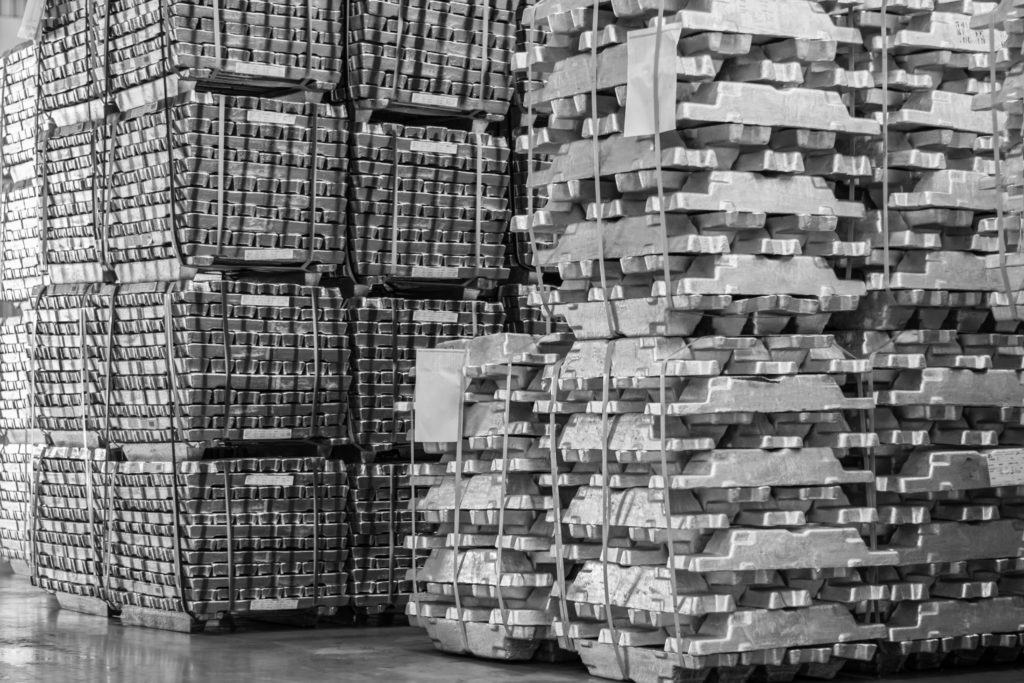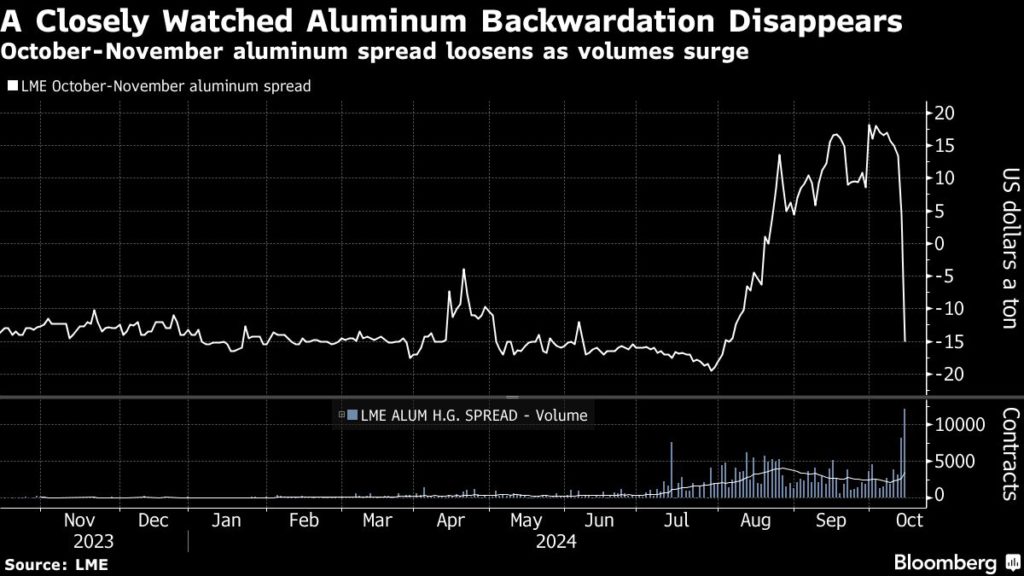Aluminum squeeze unravels on LME, easing pressure on sellers

A squeeze in the London Metal Exchange aluminum market is drawing to a close, bringing relief to sellers who have been under pressure since a large buyer emerged.
For months, the October aluminum contract has been a focal point for traders due to its steep premium to later-dated futures. Now, with the contract set to expire on Wednesday, that premium has vanished after a wave of selling over the past two trading days.
On Monday, October aluminum traded at a discount of as much as $16.50 a ton to November futures, compared with a $22 premium at the start of the month.
Premiums for nearby contracts — known as backwardations — often emerge when spot demand shoots ahead of supply, but they can also reflect shifts in the power dynamics between major buyers and sellers. With the broader aluminum market being well-supplied and other price spreads at discounts, the October-November spread has attracted attention due to the emergence of a single large buyer of the October contract, and several smaller but significant sellers.

Bloomberg reported last month that Trafigura had amassed a large long position for October, which would enable the trading house to take ownership of a huge volume metal if held to expiry. For those holding opposing positions, the growing backwardation meant that they faced a choice between paying a steep premium to buy their contracts back, or using physical metal to deliver against them.
Now the balance of power appears to be shifting, with the widening discount and heavy trading volumes indicating that holders of long positions could be eager to sell them ahead of expiry.
The latest LME data showed that on Oct. 10 one party held long positions equal to 20%-29% of all October contracts — down from a peak of more than 40% — while five parties held short positions of 5%-9%, and one held a short of 10%-19%.
Trafigura didn’t immediately respond to a request for comment on Monday.
Traders often deliver metal into the LME’s global warehousing network when backwardations flare up, but there have been doubts whether they would do so in large volumes in this instance. That’s because a key LME warehousing firm, Istim Metals, raised the fee that traders would need to pay to re-deliver cargoes that they had previously ordered out of its depots.
The move caused outrage among some traders, and several have complained to the LME, arguing that the combination of the fee hike and the large backwardation risked leaving them stranded with loss-making futures positions.
Meanwhile, benchmark three-month prices for aluminum fell as much as 1.9% on the LME, as all metals came under pressure following a briefing by China’s finance ministry over the weekend that disappointed investors who had hoped for concrete new measures to prop up growth.
The country’s export growth also unexpectedly slowed in September, curbing a trade rebound that has been a bright spot for a weakening economy, data on Monday showed.
Aluminum was 1.4% lower at $2,594.50 a ton as of 4:30 p.m. local time, while zinc and tin were more than 2% lower. Copper was down 1.3% at $9,664 a ton.own 1.3% at $9,664 a ton.
(By Mark Burton)
More News
Contract worker dies at Rio Tinto mine in Guinea
Last August, a contract worker died in an incident at the same mine.
February 15, 2026 | 09:20 am
{{ commodity.name }}
{{ post.title }}
{{ post.date }}




Comments